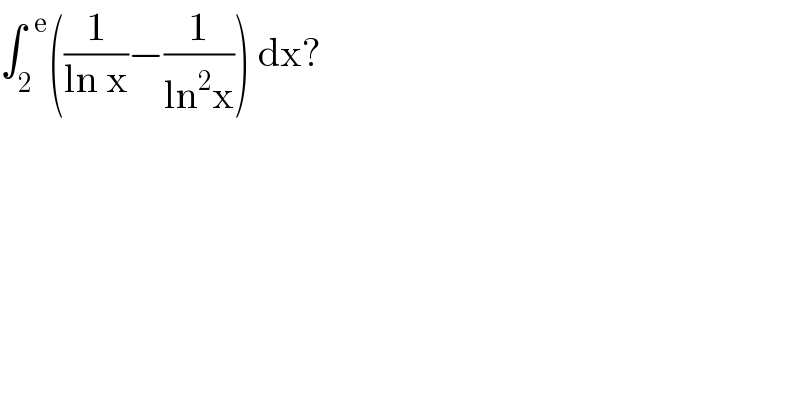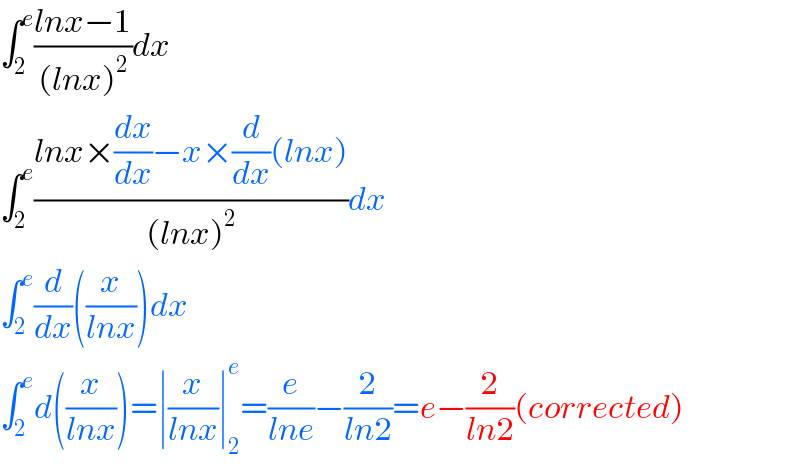
Question and Answers Forum
Question Number 87669 by john santu last updated on 05/Apr/20

Commented by mathmax by abdo last updated on 05/Apr/20
![I =∫_2 ^e (((lnx−1)/(ln^2 x)))dx vhangement lnx =t give I =∫_(ln2) ^1 ((t−1)/t^2 )e^t dt =∫_(ln2) ^1 (((t−1)e^t )/t^2 )dt =_(by parts) [−(1/t)(t−1)e^t ]_(ln(2)) ^1 +∫_(ln(2)) ^1 (1/t){ e^t +(t−1)e^t }dt =(((ln2−1)2)/(ln2)) +∫_(ln2) ^1 e^t dt =2−(2/(ln2)) +e−2 =e−(2/(ln2))](Q87684.png)
Commented by Ar Brandon last updated on 05/Apr/20

Commented by abdomathmax last updated on 05/Apr/20

Commented by Ar Brandon last updated on 05/Apr/20

Answered by TANMAY PANACEA. last updated on 05/Apr/20

Commented by TANMAY PANACEA. last updated on 05/Apr/20

Commented by john santu last updated on 05/Apr/20

Commented by Ar Brandon last updated on 05/Apr/20

